Writing a series about my family history has taken me to places I hadn’t imagined before I started. I talked in an earlier post about how I uncovered a world where women were treated as little more than slaves and seemed to be incarcerated in lunatic asylums for very spurious reasons.
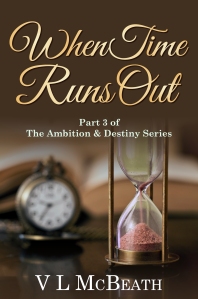
The latest book in the series (When Time Runs Out), moves to the stage where women are starting to demand the right to vote and have some control over their lives.
In the early part of the 19th century, there was a widely held belief that women did not need the vote because their interests were the same as that of their fathers or husbands, who did have the vote. As the century moved on, however, many women were no longer prepared to be defined by their biology.
Initially, the women’s suffrage campaign was closely associated with a sex war between men and women. Women started to rebel against historical male sexual domination and campaigned against being forced into a sexual identity that was often imposed by withholding the right to education and the right to vote.
By 1868, a number of local groups had come together to start the National Society for Women’s Suffrage (NSWS). This was the first attempt to create a unified voice for women’s suffrage. Due to splits in the membership, however, it was relatively ineffective.
Between 1870 and 1880 the suffrage movement began to gain momentum and meetings were set up all over Britain. Speakers such as Millicent Fawcett and Mrs Ronniger attended meetings and during the 1870’s an average of 200,000 signatures a year were collected in support of votes for women.
Due to the lobbying of women and their supporters, the subject was debated in the House of Commons every year (excluding 1874) from 1870-1879. The debates continued beyond this time, although with less frequency. From 1886 onwards every vote taken showed that the majority of MPs favoured women’s suffrage. In spite of this, however, it was not permitted to become law.
When Time Runs Out is set between 1876 and 1885. At this time, the aim of the suffrage movement was to encourage women to read and be polite in order to show that they were worthy of the vote. Nineteenth-century suffrage was not associated with the militancy of the suffragette movement in the early 20th century.
As I wrote The Ambition & Destiny Series, it felt natural that my lead character, Harriet, would be involved with the suffrage movement. In the books, she is portrayed as a strong character who had suffered miserably at the hands of some of the male members of the family. I decided that in When Time Runs Out, enough was enough and she was going to make a stand. I suspect that this would have been vehemently opposed by some of the males in the family as suggested in the following excerpt.
In this scene, Mr Wetherby, the alpha male in the series, has just paid a visit to his stepson William:
*
Once the door was shut, Mr Wetherby declined William’s offer of a seat.
“Is everything all right?” William asked. “It is an unusual time for us to meet.”
“Do you think everything’s all right?”
“Yes, I think so, for me at any rate. The business is going well and I’ve managed to secure several bigger orders this week. Most are from new customers, but Porters have put in a repeat order, which is double the size of the last one. That should keep the men busy for a few more weeks.”
“I’m glad to hear it, but that wasn’t what I meant.”
William’s brow creased as he waited for Mr Wetherby to continue.
“How would you say your wife’s state of mind is at the moment?”
A smile broke out on William’s face. “Absolutely fine, in fact I’ve never seen her so happy. She’s helping me with the business, doing the accounts and making sure I keep under budget; it’s given her a new lease of life.”
“You’ve obviously not been privy to some of the conversations I have. Over the last few days I’ve heard some particularly disturbing news about her.”
William’s frown returned. “About Harriet? Idle gossip I shouldn’t wonder.”
“That was my first thought, but it was too much of a coincidence when I heard it from two other sources.”
“What have you heard?”
“Are you aware of the women’s suffrage movement in Handsworth?”
William’s face paled and he walked to the window. “What’s that got to do with Harriet?”
“I’ve been led to believe your wife has become a regular attendee at these meetings. Were you aware of this?”
“No … well … yes, perhaps.”
“Would you care to explain yourself?” Mr Wetherby’s eyes narrowed as he glared at William.
“Back in May, the day before she went into hospital, I saw her going to one of the meetings. I mentioned it to her when she came out of hospital and said I didn’t want her going to anymore.”
“Well it would appear she’s disobeyed your wishes.”
“How can you be so sure? Maybe your sources saw her when I did.”
“I’ve only heard about it recently. First was from someone Sarah-Ann invited to Wetherby House. Not a woman I’ve ever taken to if I’m being honest, a bit too forthright, but she mentioned to Sarah-Ann that she’d seen Harriet at a meeting.”
“That could have been before she was in hospital.”
“It could have been, although I was led to believe it was only a couple of weeks ago. In addition, a second friend of hers also mentioned it to me last week.”
“That still doesn’t prove anything, but even if she did, why’s it of such concern?”
“Why is it of such concern? William, listen to yourself.” Mr Wetherby’s voice grew louder. “Women are not capable of understanding politics and shouldn’t be encouraged to do so. I’ve no idea what propaganda they give them at these meetings, but it’s not right. Can you imagine what it would be like if women did as they pleased? This country would be the laughing stock of the world. Haven’t you heard the Marquis of Salisbury talking about it? He makes a splendid case for keeping things as they are.”
“But they’re not going to change anything, are they? It just lets them get together and have a cup of tea. Most probably it’s an excuse to sit and talk for an afternoon.”
“Don’t you be fooled. The third person I heard it from, and the reason I’m here, was a Liberal councillor in Handsworth. Apparently, they had a Liberal Member of Parliament at last week’s meeting. A Liberal, William, are you listening? Goodness knows what he told them, but you can imagine the delight of the councillor when he told me a member of my own family was fraternising with the Liberals. How do you think I felt? Not only that, it’s the Liberals in parliament who are encouraging this nonsense. Can you imagine if millions of women started voting for the Liberals? It could be the end of the Conservative party. Don’t you understand? We can’t let that happen.”
William laughed. “Harriet’s not going to do that by herself; we’d have to stop them all from attending.”
“You have to start somewhere and Harriet’s the sort of person who’d encourage others.”
“That’s unfair. She’s not one of the leaders.”
“Not at the moment, but if she gets the chance to make a nuisance of herself then she will. If I’m being honest, you’ve become far too soft with her and this sort of behaviour suggests to me that she’s still ill. If you want my opinion she has to go back to the asylum until she learns her place.”
Extract from When Time Runs Out by VL McBeath
*
When Time Runs Out is published on 15th November 2017.
To mark the launch, all available ebooks in the series are available for 99p / 99c until 19th November. It is FREE on Kindle Unlimited. To get your copies, click here.
Please Note: The books in The Ambition & Destiny Series form one story. Each ends with a cliffhanger and it is recommended that the Parts are read in sequential order.
The book is written in UK English.

 Today, I’m delighted to announce that Different World, the fifth and final instalment of what is now The Ambition & Destiny Series, has been published as an ebook on Amazon. The paperback should be available in August.
Today, I’m delighted to announce that Different World, the fifth and final instalment of what is now The Ambition & Destiny Series, has been published as an ebook on Amazon. The paperback should be available in August.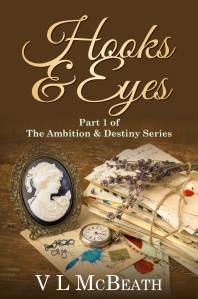 As this project has drawn to a close, I’ve been asked if there will be any further books either in the series or otherwise.
As this project has drawn to a close, I’ve been asked if there will be any further books either in the series or otherwise.


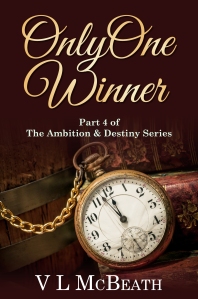




 Archive Storage: Image – Pixabay
Archive Storage: Image – Pixabay 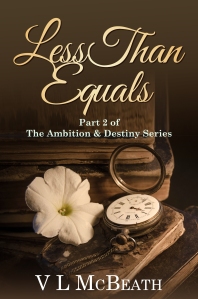
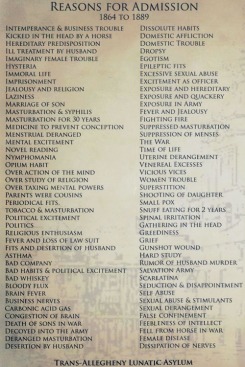 months. When she came out, on paper at least, life appeared to return to normal. However, fourteen years later, she was admitted to the same asylum, again for another two months.
months. When she came out, on paper at least, life appeared to return to normal. However, fourteen years later, she was admitted to the same asylum, again for another two months.